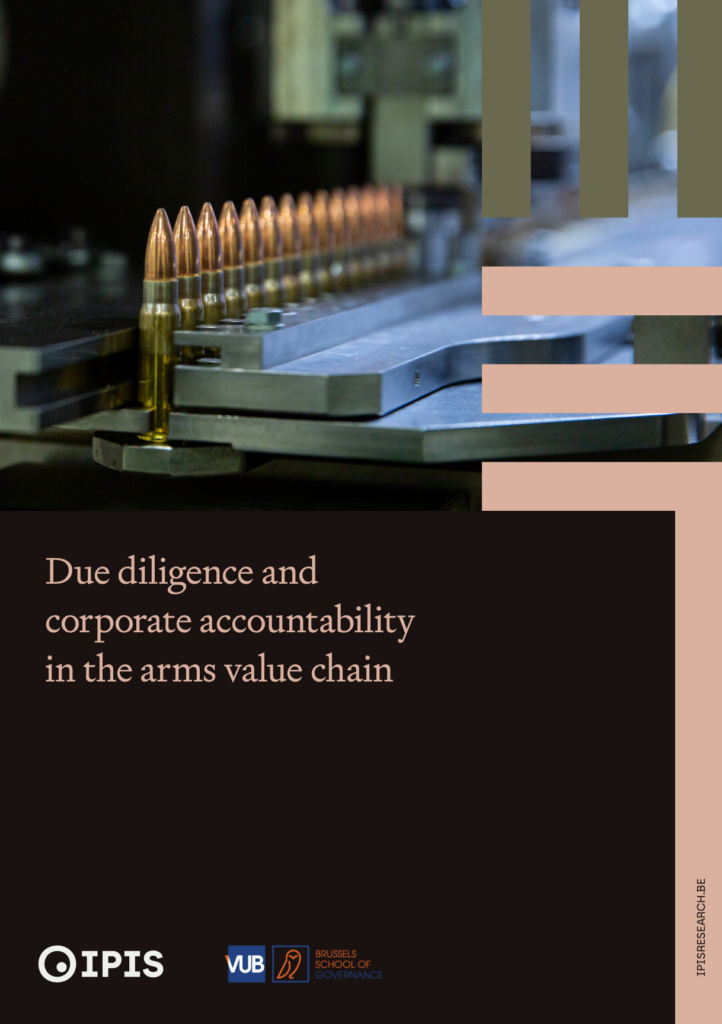Responsible business conduct is based on three pillars: the state’s duty to protect, the corporate responsibility to respect human rights, and the requirement of both states and companies to guarantee access to remedy. Identifying, preventing, and mitigating risks of adverse impact can be concretised through human rights due diligence.
Because arms transfers are closely linked to the states’ geopolitical interests and defence policy objectives, they are highly regulated and subjected to a strict export licencing process. States must ensure that these licences are only granted after conducting an impact assessment of the activities involved and as a result, corporate accountability has somehow gone unnoticed.
The international legal framework includes several mandatory and non-binding instruments that require states to regulate arms value chains. Today, the debate also focuses on the companies’ duty of care in the sector as:
- Risk assessments conducted by the state granting a licence do not discharge companies of their duty to address actual or potential adverse impacts they may cause as a result of their activities or products.
- Compliance with export licence requirements does not discharge companies of their responsibility to respect human rights and humanitarian law.
This report presents a comprehensive overview of the possibility and necessity of establishing corporate responsibility and accountability for companies active in the arms value chain. The main questions are:
- To what extent are the companies active in the arms value chains required to incorporate into their risk assessments, the adverse and salient human rights impacts that their activities or the misuse of their products may cause or contribute to?
- To what extent should the duty of conducting such risk assessments to obtain export licences entail the obligation to implement due diligence procedures?
The analysis defends the notion of shared responsibility of both states and companies which implies that corporate actors do not merely play a subordinate role but act on an equal footing with states, implementing their own due diligence processes. States and companies active in arms value chains have then a shared responsibility to prevent and remedy the misuse of transferred arms, and serious breaches of international human rights and humanitarian law. The next step would be to require due diligence for all the activities of a corporate group or a value chain, and not only for licencing purposes.
Finally, the study stresses that responsible corporate behaviour also implies engagement with stakeholders and representatives of civil society. Leading private, public or state-owned companies still need to find channels to do so as stakeholder consultation and access to information have not been part of arms export licencing processes until now.
Photo: Production of 7.62 mm bullet for automatic rifle – Adobestock
This publication has been produced with the financial assistance of the Belgian Directorate-General for Development Cooperation and Humanitarian Aid (DGD). The contents of this document are the sole responsibility of the authors and IPIS and can under no circumstances be regarded as reflecting the position of the Belgian Development Cooperation or of the Brussels School of Governance (Vrije Universiteit Brussel).




